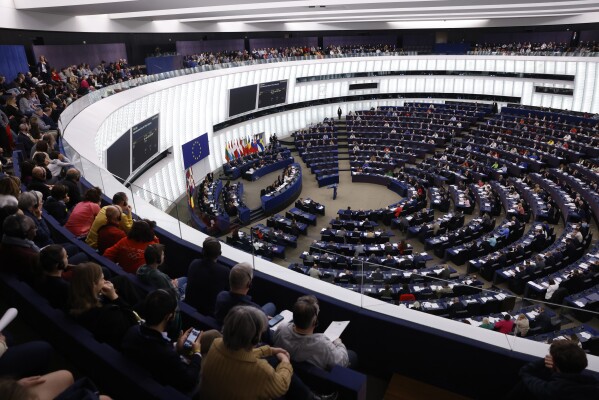BRUSSELS (AP) — Nearly 400 million European Union citizens have been going to polls this week to elect members of the European Parliament, or MEPs, in one of the biggest global democratic events.
Far-right parties are seeking to gain more power amid a rise in the cost of living and farmers’ discontent, while the wars in Gaza and Ukraine stay on the minds of voters.
Over 50 countries go to the polls in 2024
One of the biggest questions is whether European Commission President Ursula von der Leyen will remain in charge as the public face of the EU.
Here is a look at the election and the biggest issues at stake:
WHEN IS THE VOTE?
EU elections are held every five years across the 27-member bloc. This year marks the 10th parliamentary election since the first polls in 1979, and the first after Brexit.
The elections started Thursday in the Netherlands and finish on Sunday, when most countries hold their election. Initial results can only be revealed in the evening after polling stations have closed in all member states.
HOW DOES VOTING WORK?
The voting is done by direct universal suffrage in a single ballot.
The number of members elected in each country depends on the size of the population. It ranges from six for Malta, Luxembourg and Cyprus to 96 for Germany. In 2019, Europeans elected 751 lawmakers. Following the United Kingdom’s departure from the EU in 2020, the number of MEPs fell to 705 with some of the 73 seats previously held by British MEPs redistributed to other member states.
After the election, the European Parliament will have 15 additional members, bringing the total to 720. Twelve countries will get extra MEPs.
National political parties contest elections, but once they are elected, most of the lawmakers then join transnational political groups.
WHO IS VOTING?
The minimum voting age is 18 in most member states. Belgium…

